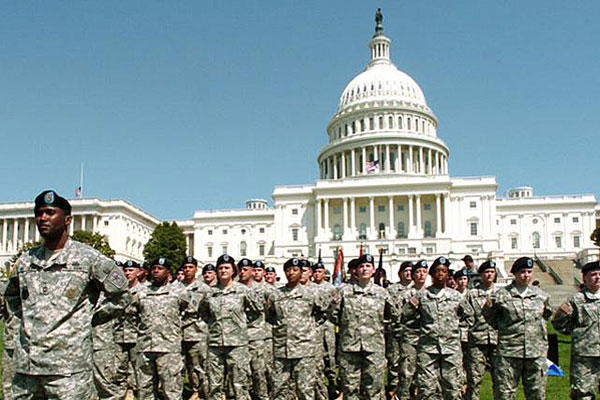The 2016 National Defense Authorization Act (NDAA) was signed into law by President Obama on November 25, 2015. There are many pay and personnel changes in the new law; we will cover a few of the major changes here.
Military Retirement Pay
The new law changes the way retirement is calculated for people entering service on or after January 1, 2018. There will also be an "open season" for personnel currently on active duty who have less than 12 years active duty on December 31, 2017.
The new retirement plan is known as the "Modernized Retirement System" and will require the military to match up to 5% of a member's TSP contribution. However, the retired pay percentage of basic pay will drop to 40% for 20 years service, 60% for 30 years service, and 80% for 40 years service. If a member leaves the military before serving 20 years they will still get the TSP benefit.
Military Active Duty Pay
Nuclear Career Officers can now get a annual maximum bonus of $50,000, up from $35,000.
Flight surgeons will have their aviation bonuses reinstated.
Remotely Piloted Aircraft pilots will get an increase from $850 to $1,000 in their monthly Aviation Career Incentive Pay (ACIP) and see their Aviation Continuation Pay (ACP) bonus increase from $25,000 to $35,000 per year. Those involved in "other flying duty" related to Remotely Piloted Aircraft will also see a monthly ACIP bonus of $850 and an annual ACP bonus of $25,000.
Officers above paygrade O-7 will not see any pay raise for 2016, however the 2016 pay for all other military personnel has not been voted on by Congress.
BAH will decrease from covering 100% of the cost of housing to only 95% of the cost of housing by 2019. BAH will drop 1% each year from 2015 through 2019, however members will not see the decrease until they transfer to a new duty station.
TRICARE Pharmacy Changes
The retail cost for a 30 day supply generic drugs will go from $8 to $10, and brand name drugs will go from $20 to $24. For mail-order pharmacy, the cost a 90 day supply will go from $16 to $20 for brand name drugs and $46 to $49 for non-formulary drugs.
Army Breastfeeding Policy
The Secretary of the Army is directed to develop a comprehensive policy regarding breastfeeding by female members of the Army who are breastfeeding. At a minimum, the policy shall address the following:
- The provision of a designated room or area that will provide the member with adequate privacy and cleanliness and that includes an electrical outlet to facilitate the use of a breast pump. Restrooms should not be considered an appropriate location.
- An allowance for appropriate breaks, when practicable, to permit the member to breastfeed or utilize a breast pump.
Legal Issues
Regulations were put into place to strengthen protections for victims of sexual assault and prevent retaliation against victims and those who report or otherwise intervene in sexual assault cases.
Housing
The Army gets money for new housing construction in Camp Rudder, FL; Rock Island, IL; and Camp Walker, Korea; while the Navy gets new construction money for housing in Wallops Island, VA.









